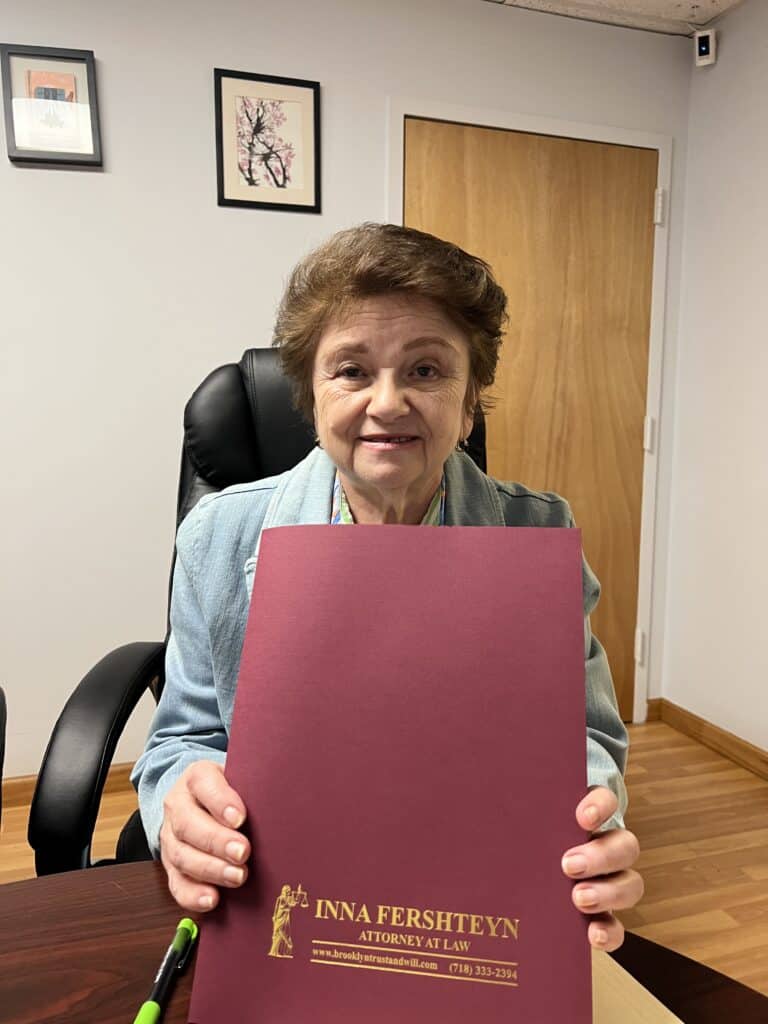Article 81 Guardianship of an Incapacitated Adult in New York
As people age, they gradually lose the ability to care for themselves. There are also occurrences when a person becomes physically incapacitated and is unable to function without supervision as a result of physical impairment. Although these can be unpleasant situations for families, New York has provisions to provide care for those who can no longer care for themselves. One of these provisions is Article 81 of New York’s Mental Hygiene law, otherwise known as Article 81 Guardianship, which authorizes a court to appoint a guardian to manage the personal needs and/or finances of a person that cannot handle them on their own. The process of petitioning for guardianship is relatively swift and the powers of a guardian depend on the condition of the incapacitated person. However, all decisions must be rendered by a judge and approved by the court. During the petition process for guardianship, having an experienced guardianship attorney will help alleviate the burden placed on any family and ensure that guardianship hearings end favorably for the petitioning parties and all necessary powers are placed in the hands of a trusted guardian.

When Does Article 81 Go Into Effect?
Article 81 Guardianship is an authorization given by a court to a guardian to manage the personal and/or financial matters for a person that has been deemed by the court as incapacitated. Capacity refers to the ability for an individual to make decisions for themselves Each Article 81 Guardianship case is different because they involve different levels of incapacity and different powers allocated to each guardian. In an article 81 case, incapacity refers to common mental disabilities such as dementia, Alzheimer's, and physical impairments. The moment that an individual is proven to be mentally disabled, they are no longer legally eligible to sign any estate planning documents. Therefore, it is crucial that a healthcare proxy and power of attorney are signed beforehand in a right state of mind.
Some guardians might be given the authority to pay bills for an incapacitated person while others are given the authority to prevent self-neglect since the individual is unable to provide adequate medical and hygienic care for themselves. Other guardians might be given the authority to prevent financial abuse because elderly financial exploitation is an ever-present and fast-growing danger, or physical abuse, whether by family members, acquaintances, or those providing care. Guardians might also be authorized to engage in Medicaid and estate tax planning. In any case, having an experienced elder planning lawyer is important so that all powers can be assigned to trusted guardians and then enforced properly.
The Process of Petitioning for Article 81 Guardianship
Petitioning for Article 81 Guardianship is a serious matter and thereby has a dedicated and intricate process. In order to obtain Article 81 guardianship, a petitioner must file a case with the Supreme Court or county court where the incapacitated person lives. At the beginning of each Article 81 case, the person on whom’s behalf the petition is being filed is referred to as an “alleged incapacitated person” because their inability to care for themselves is, at the point, only an allegation. To begin an Article 81 case, the petitioner must complete four steps:
1. Fill out the following forms:
- A petition: A written order asking the court to start a case.
- An order to show cause: A written request asking the court to rapidly open a case which will also be used to inform the alleged incapacitated person that an Article 81 application has been filed in court and lists the powers the petitioner believes the guardian should have over alleged incapacitated person, among other things.
- A request for judicial intervention: A request for a judge to be assigned to the case.
2. File a guardianship petition.
3. Pay a filing and index number fee.
4. Serve legal papers to all people involved in the guardianship case, including the alleged incapacitated person, within a time frame set by the court.
Once the Article 81 case is filed by the petitioner, a hearing presided over by a judge will occur within 28 days after they sign the order to show cause. The court will appoint an evaluator to speak to the alleged incapacitated person, evaluate evidence, and present a written report. After the written report is presented, a formal hearing takes place where a petitioner presents their case stating why the alleged incapacitated person needs a guardian, testimony is heard, and evidence is considered. At the end of the hearing, the judge will determine whether the alleged incapacitated person is indeed unable to handle their personal or financial matters and whether they appreciate the consequences therein of not being able to handle such matters. They then will attempt to find the least-restrictive remedy to protect the alleged incapacitated person’s independence as much as possible. If the incapacity is sufficient enough that the judge deems guardianship necessary, they will determine the powers allocated to the guardian, whether more than one guardian will be appointed, and the duration of the guardianship. After a guardian is appointed, the petitioner must have an order and judgment form signed by the presiding judge, and then send it, along with a notice of entry, to all those who received a copy of the verified petition. All guardians must complete a six-hour course where the duties of the guardian are explained.
The Implications of Article 81 Guardianship
As outlined above, petitioning for Article 81 Guardianship is an intricate process which should not be taken lightly. In the event that an alleged incapacitated person has not pursued a health care proxy or power of attorney prior to being diagnosed with a cognitive disability, an Article 81 proceeding is one of the few ways where an individual can obtain agent status over them. It is also important to note that courts can appoint temporary guardians or neutral guardians in the event that petitioners cannot agree on a guardian between themselves. Accordingly, it is crucial to find unanimity on an appropriate guardian and plan for all eventualities, no matter how unpleasant they might be to contemplate. Having frank discussions with aging relatives about the possibility of medical emergencies and incapacities can help to ease tension and ensure that the aged person understands there is a plan in place for their care. Having an experienced elder planning attorney will help in creating the best possible long-term health plan and ensure that guardianship hearings end favorably for the petitioner. To ensure appropriate care for a loved one and begin planning their estate, call the Trust and Estate Planning Law Office at (718) 333-2395.








